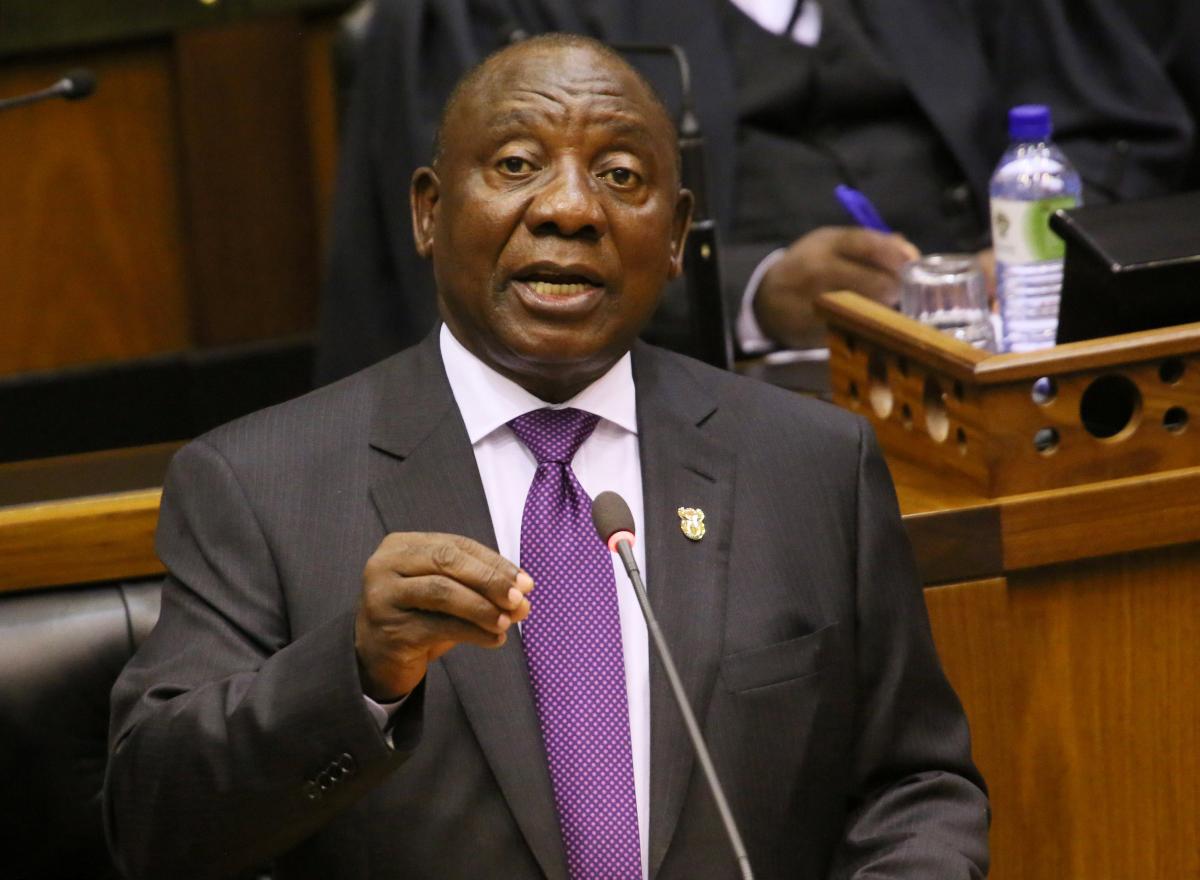
Rand’s slump proves global excitement about Ramaphosa is over

If there were any doubts that the euphoria following Cyril Ramaphosa’s election as president of South Africa has worn off, this week’s slump in the rand has removed them.
The currency has plunged to a level last seen when Jacob Zuma was still in charge, having retreated from a three-year high against the dollar amid a toxic cocktail of negative economic news, political risks and falling commodity prices.
When Ramaphosa took over as president in February, he promised to stimulate growth and attract investment, fix the finances of state-owned enterprises, and root out the corruption that marked Zuma’s administration. Investors took note: the rand surged to a three-year high in February and borrowing costs fell as inflows into the country’s bonds and stocks surged. The mood was dubbed “Ramaphoria.” There’s no sign of it now.
Things started changing in April as rising U.S. interest rates and a strengthening dollar began to sap demand for emerging-market assets. While crises in Argentina, Turkey and Russia provided the context, homegrown problems fueled the retreat.
The economy contracted in the first quarter as the current-account deficit widened, highlighting the country’s vulnerability to capital outflows. Mining production, once the engine of the economy, has slumped, and manufacturing and consumer spending have struggled to pick up the slack. A widening budget gap has limited Ramaphosa’s ability to boost infrastructure and social spending.
The rand dropped 2.2 percent on Wednesday to 14.5657 per dollar, before recovering ground to trade at 14.5364 as of 11:21 a.m. Thursday in Johannesburg. It hit 15.5517 on Monday, the weakest since June 2016. Moody’s Investors Service rates South Africa’s foreign and local debt at Baa3, the lowest investment level.
Adding to the weakness, Naspers Ltd., which accounts for 18 percent of the benchmark stock index, tumbled after China’s Tencent Holdings Ltd., in which it owns a 31 percent stake, missed earnings estimates.
The tipping point came on Aug. 1, when Ramaphosa, bending to the populist faction of his party, announced that he would seek a constitutional amendment to allow expropriation of land without compensation. The move could undermine property rights and deter investment, some analysts say. Investors are looking north to neighboring Zimbabwe, where a program of violent land seizures beginning in the late 1990s wrecked the economy.
Gwede Mantashe, chairman of the governing African National Congress, stoked the concerns on Wednesday when he proposed that white farmers should be forced to turn over excess land to the government, handing traders another excuse to abandon the rand on a day that both Moody’s and Reserve Bank Governor Lesetja Kganyago sounded warnings on the economy.
The next big test for the rand may be the mid-term budget review scheduled for October, where Finance Minister Nhlanhla Nene will have to convince investors that the government can maintain spending discipline in the run-up to 2019 elections.






